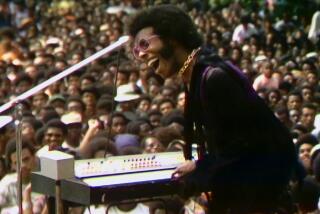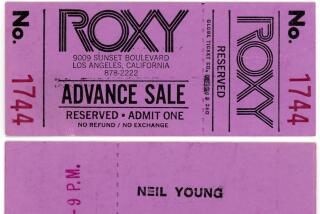Man of his times
He loved burlesque, ballroom dancing and “a good brawl.” So confessed modern America’s loneliest and best maverick investigative reporter, I.F. (“Izzy”) Stone. For several decades, especially during the McCarthy nightmare, Stone was almost alone in taking on the Washington establishment. From the loyalty purges to Vietnam and beyond, he revered “the power of a fact,” even when it sometimes contradicted his own long-cherished beliefs. (On Castro’s Cuba and Stalin’s Russia, he reserved the right to modify his early enthusiasm.)
According to his latest biographer, D.D. Guttenplan, Stone -- who would rather be accused of inconsistency than pussyfooting as a reporter -- was an egoistic prima donna, hell to work for (one assistant had to seek therapy), sometime party liner, hard-bitten newsman, fellow traveler, libertarian socialist, passionate New Dealer, traumatized anti-fascist and ambivalent Zionist. He was a mass of contradictions and all the better for it.
Indeed, he was a most unlikely hero to young journalists like myself during the “Haunted Fifties” (the title of one of his books) when most journalists -- and most mainstream liberals -- chickened out. He was short, chubby, stared out from Coke-bottle glasses and was so deaf he had to use a primitive two-piece microphone-and-battery hearing aid, which sometimes he furtively clamped against the door of a congressional hearing from which he’d been (typically) excluded for asking snooping questions. He had the soul of a dogged police reporter.
Stone’s glory days coincided with, and were triggered by, the 1945 death of President Franklin D. Roosevelt. Suddenly liberal New Dealers like Stone found themselves out of favor and under suspicion. In swift succession, left-wing unions, the more outspoken liberal organizations, Communists and their allies and the “caring” professionals like teachers and social workers came under the hammer.
None of the Red-hunting governmental committees could have functioned without the able assistance and scurrilous files of FBI Director J. Edgar Hoover. While Stone called the Truman years “the era of the moocher,” he hated only the top G-man for whom he had a fear that “ran through him like an electric current. Because Izzy knew what Hoover could do.” After Stone publicly expressed his contempt, an enraged Hoover repaid the compliment with a “massive undercover operation,” tapping his phone, sifting his garbage, opening his mail, shadowing his every footstep -- targeting Stone not only as a noisy and nosy troublemaker but also as a Russian spy code-named “BLIN.” Even today Stone remains “a hate figure for the American right,” which periodically resurrects the fairy tale that he was a Soviet agent. Usually this smear is based on a purported KGB agent’s report to Moscow of his wartime lunch, or lunches, with Stone, sometimes at Harvey’s restaurant in Washington, D.C. -- a curious choice since it was also frequented by Hoover.
From the late ‘30s, Stone, the son of a Richmond, Ind., shopkeeper, though a lazy student and college dropout, had risen on talent and chutzpah to become one of America’s most successful journalists, as reporter and chief editorial writer for the influential New York Post and tabloid daily PM. With easy access to the White House under FDR, he made regular appearances on “Meet the Press” in the mid-1940s. Then overnight he became a Cold War “unperson,” the vanished man of American journalism.
Stone was an Untouchable, not least among nervous mainstream colleagues. Once he came out with the 1953 book “The Hidden History of the Korean War” challenging the official Washington line, “bridle-broken” liberals joined conservatives in trashing -- and ostracizing -- him. (For three years he had not a single visitor to his Washington office.) This was especially painful to Stone, who, ever since Hitler’s rise to power, had been “virtually obsessed by what he saw as the German and Austrian left’s failure to unite against the Nazi threat.” And now, he feared, it was happening here in America, effective resistance crippled by “the liberal impulse to genuflect before the heresy hunters.” This “criminal disunity” on the American left was paving the road for a native fascism, Stone believed.
What a strange time! The ACLU’s general counsel, Morris Ernst, was also J. Edgar Hoover’s personal informant. Senate liberals, led by Hubert Humphrey, inserted a clause in the McCarran Act calling for “subversives” to be rounded up and put in detention camps in a “national emergency.” In this bizarre period, many liberals were so eager to prove their anti-Communist credentials “that the effect was to lend aid, comfort and moral authority to the inquisitors.” Stone himself became so anxious he even considered emigrating with his family to the new nation of Israel, where previously he’d been one of the first journalists to cover the illegal Jewish underground to Palestine.
Then he got the inspired idea that if no newspaper would hire him he’d hire himself and began to self-publish, with his devoted wife Esther’s help, a one-man newsletter, I.F. Stone’s Weekly, which, “from the very first issue . . . functioned as a kind of underground telegraph of the American opposition.” For its first decade, it had fewer than 20,000 subscribers but was passed from hand to hand, family to family, like samizdat. My own mailed copy came to me in Los Angeles wrapped in brown paper like porn but even so had been ripped open by postal inspectors or my FBI shadows or maybe even my nervous landlord.
Guttenplan’s big, boisterous biography of Stone is a “two-fer.” (I should note that I was interviewed by the author for this book, and my work is referenced briefly in it.) You get a straightforward life, with almost no juicy gossip because Stone appears to have led an astoundingly blameless personal life (and also because the author had the cooperation of Stone’s family).
But what makes the book outstanding is Guttenplan’s sense of Stone’s brand of skeptical, independent radicalism as shaped by larger movements, starting with the 1927 execution of the “good shoemaker and poor fish peddler,” Sacco and Vanzetti, for murders they may not have committed. It was then that the young and penniless Stone, walking off his first newspaper job in protest, realized the deadly consequences of dissent.
Guttenplan’s book is a colorful, rambunctious left-of-center American cavalcade, from the Great Depression to the Vietnam War whose young protesters, in exuberance so like Stone, plucked him from his long, lonely “internal exile.”
I have a fantasy. What would happen if the deaf, half-blind, cocky and unputdownable I.F. Stone, with his “streetwise, lapel-grabbing voice,” was reincarnated in the middle of an Obama press conference? My guess is that he’d go after our iconic president like a hungry terrier.
--
Sigal is a screenwriter and novelist.
More to Read
Sign up for our Book Club newsletter
Get the latest news, events and more from the Los Angeles Times Book Club, and help us get L.A. reading and talking.
You may occasionally receive promotional content from the Los Angeles Times.







